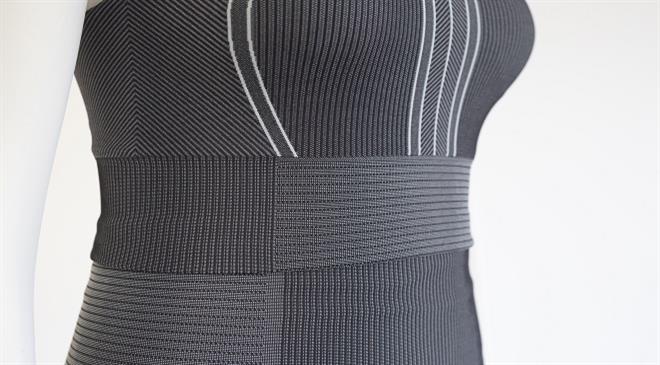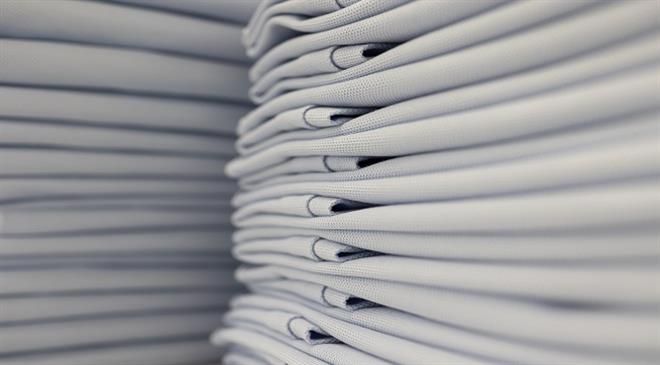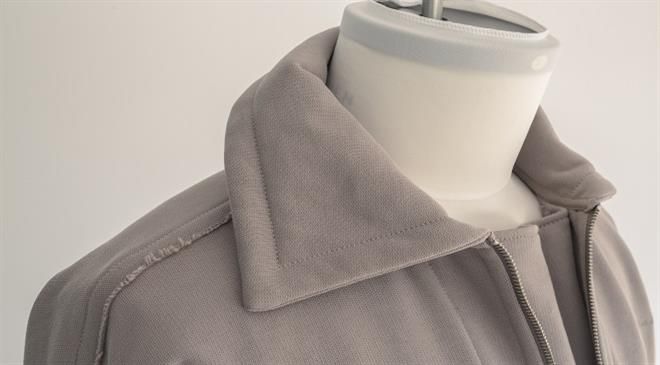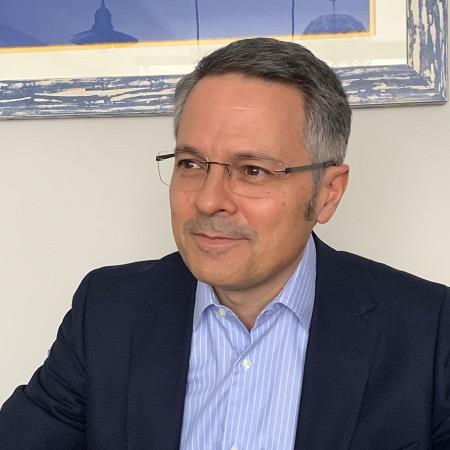The world’s leading fashion brands trust us with their business
Nextil Group is one of the world’s largest knitted and elastic fashion fabric and garment manufacturers. They produce fabrics and garments with innovative and sustainable fibres. Along with their in-house R&D department they constantly develop new fabrics and garments with state-of-the-art performance. The Spanish textile group has 4 main production sites situated in Spain, the US, Portugal and (very soon) in Guatemala, specialised in Luxury, Sports, Swimwear, Lingerie & Shapewear and Medical textiles and garments. In a discussion with Fibre2Fashion, Nextil Group General Manager Manuel Martos about the various divisions, certifications, sustainability and new products.
What are knit stretch fabrics? What is the global market size of such fabrics?
Elastic fabrics are fabrics made using circular knitting or warp knitting technology. It is an elastic fabric due to its own construction and elastic due to its composition, with a high percentage of elastane. Its technical characteristics are different depending on the knitting technology used, construction and composition. They are a very technical fabrics made usually for intimate, shapewear, sports and swimwear, with specific and high physical characteristics.
Within these fabrics, the most common combinations are polyester-elastane, nylon-elastane, or cotton-elastane. We are specialised in the second, although we are present in all of them.
The size of the market is difficult to define, but we are talking about more than 10,000 million garments a year, worldwide, at least.

Your production is completely based in Europe and North America. What advantages does it give you in terms of price, time and logistics?
Our strategy is based on proximity, providing different origins of products other than Asian ones. Obviously, manufacturing in Europe or America is not cheap, but it has its advantages of reducing lead times, batch size, reliability of logistics and reduction of working capital for our clients, which differentiates us and provides a very interesting proposal in terms of supply strategy.
You are soon going to add a production base in Guatemala. Why not Asia?
We have decided to open our new factory in this Central American country because of its easy access to two oceans (Atlantic and Pacific) and the Pan-American highway, that provides an enviable connection with practically all the continents. Its geographical location allows us to access the market for large productions, competing with Asian suppliers, increasing the profitability of our current production and obtaining maximum efficiency in logistics and distribution, with preferential tariff access.
We have invested €40 million to achieve a state-of-the-art industrial plant based in high technology and sustainability, that will also optimise the structure cost and maintain the certifications of origin of the products, thanks to the agreements that this country has.

How big is the market for swimwear?
In the swimwear market, it is necessary to differentiate between men and women, completely different markets not only commercially, but also in terms of fabrics and designs.
If we talk about elastic fabrics, we must fundamentally think about women’s swimwear. The market will be around 100 million metres.
Nextil Group has five different divisions. What is the unique property in fabrics and garments that are used in each of these divisions?
The world’s leading fashion brands trust us with their business because they value our know-how, craftsmanship and finishes, as well as the guidance and advice we offer, whatever the technical challenge they present us with.
At Nextil Group, our work involves all the phases of making fabrics. We buy the yarn, we design the weft, the patterns, the textures, and we can also carry out 100 per cent sustainable dyeing with our Greendyes system. In addition, in our factories we have circular knitting machines of up to 44 gauges, and warp knitting machine that allow us to make all kinds of fabrics jacquards, meshes, rib, lurex, stripes, simplex, spacer.
We serve both external fabric buyers and clients from other Nextil Group divisions who decide to make their garments with us.
In making our garments, we follow both the conventional cut & sew as well as the seamless technique. This last method, with a unique weaving technology that uses specific circular looms, allows us to develop comfortable and resistant garments that adapt perfectly to the body. We have extensive experience in both techniques and we have a great team of fully specialised professionals for each of the processes that we carry out.
Do you also have clients in China? What is your reading about the China market?
We manufacture fabrics and garments for international brands, mainly North American and European one. Sometimes our clients ask us to send our merchandise to their warehouses or subcontractors in Asia, but it is thanks to their prescription.
What steps have been taken at Nextil to minimise the environmental footprint in the production process?
At Nextil Group we have decided to place the sustainability strategy at the core of our business. Not only with the research of new and more sustainable fibres, but also with the treatment given to them. Our Greendyes system, which has been in operation for a decade and has a Spanish patent, is a new concept of textile dyeing. Based on a non-polluting process, this technique reduces dramatically the quantity of water and energy used, with consumption of 75 times less energy than classic dyeing techniques. Only natural materials are part of the dyeing treatment. In addition, the small amount of water used is a 100 per cent recycled, as it is used for multiple dyeing batches and can later be reused either for irrigation or as a fertiliser, since it contains minerals and nutrients without toxic chemicals.
Furthermore, we continue working to reduce the carbon footprint throughout the different steps of the fabric and garment supply chain. We have certifications that prove our compromise in terms of environmental and social sustainability matters. We have a sustainability department dedicated exclusively to overview, control and create the new sustainability strategy for the business.

Of all the five divisions at Nextil, which has the highest growth rate and why?
We are developing collections with greater added value and quantity for the luxury market. The order book as of September 2021 was a 250 per cent higher than 2020 on the same dates. A significant effort is being made to strengthen and enter new brands in the Luxury Division’s client portfolio, incorporating new senior professionals in the commercial department.
Also in the Sports Division, the consolidation of last year’s great growth due to the change of fashion habits, has kept carrying out an intense commercial activity, both in the world of garments and in that of technical fabrics focused on sports. The sales team in the US and Europe is being reinforced, with the aim of growing significantly in the coming years.
Which division saw a spurt during the pandemic? Why?
Our Sports Division was the one that experienced the greatest boom, due to the changes in the dress habits of a large part of the world population, who were demanding more comfortable clothes and focused on athleisure.
In turn, the Luxury Division has enjoyed a meteoric recovery in its turnover, far exceeding the figures for 2019, and with products of greater difficulty and value.
What all certifications do you have at factory and product levels?
- OEKO-TEX STEP: Sustainable Textile & Leather Production (STeP) is a certification system that certifies the social and environmental aspect of production centres in the manufacturing chain.
- GOTS: Independent certification that endorses the use of organic fibres, always taking into consideration the adequate and sustainable use of social and environmental aspects in the supply chain of raw materials.
- GLOBAL RECYCLED STANDARD: International, voluntary and comprehensive product standards that set requirements for third-party certification of recycled inputs, chain of custody, social and environmental practices, and chemical restrictions.
- OEKO-TEX STANDARD 100: Certifies that the garments are manufactured without substances known to be harmful to health.
- RECYCLED CLAIM STANDARD: Recycled Claim Standard (RCS) is an international voluntary standard that establishes requirements for third-party certification of recycled inputs and chain of custody. The aim of the standard is to increase the use of recycled materials.
- ORGANIC CONTENT STANDARD: Organic Content Standard (OCS) is an international, voluntary standard that sets requirements for third-party certification of certified organic input and chain of custody. The goal of the standard is to increase organic agriculture production.
- SEDEX / SMETA: One of the world’s leading ethical trade organisations, Sedex works with multiple companies to improve working conditions in global supply chains.
Any new innovations in the pipeline in terms of production process or products?
After years of research, along with various European universities and technological institutes, this year we will launch a new product for our Sports Division: auxetic fabrics, also called non-Newtonian fabrics. We are processing the patent for it, so we can’t reveal much yet, but it will certainly be a unique product.
We are having advanced conversations with CiCLO to start using their avant-garde sustainable technology in our fabrics. CiCLO additive technology is an easy-to-implement upstream solution that allows synthetic plastic-based fibres to behave more like natural ones. CiCLO integrates biodegradable spots in the fibres, which permits the naturally found microbes in the environment to break them down. We are beyond excited to keep progressing with our testing as this will mean a significant change for our clients, us, and the environment.
On the other hand, since last year we have started to use the CLO software in our garment factories in Portugal. This software allows samples to be viewed in 3D and in motion, which makes it easier for the client to see how the samples will look and behave in movement.
From which countries/regions do you source your fibre and other raw materials?
Our strategy is based on having the fabrics certificated with the European and North American origin. For this, we have to source from Italian, Spanish and North American suppliers, although we also produce, with fundamentally Korean yarns, when the certificates are not necessary.
In which countries/regions do you sell your products? Any plans to expand to other countries?
At the moment we sell to clients from all over the world, we work as suppliers of brands from five continents. Currently, our goal is to continue expanding, mainly in Europe and North America with our luxury and sports divisions, and South America for markets such as underwear and shapewear.
Your company produces both fabrics and garments. What is the ratio of sales?
Sales in 2020 were very similar between both services, slightly higher in the garment unit (53 per cent). In 2021, there has been a rebound in sales of the major garment section, as sales in the fabric unit were affected by the continuous outages in the yarn supply chain, both in Europe and America, forcing intermittent closures in the factories that didn’t allow to respond to all the demand we had.




